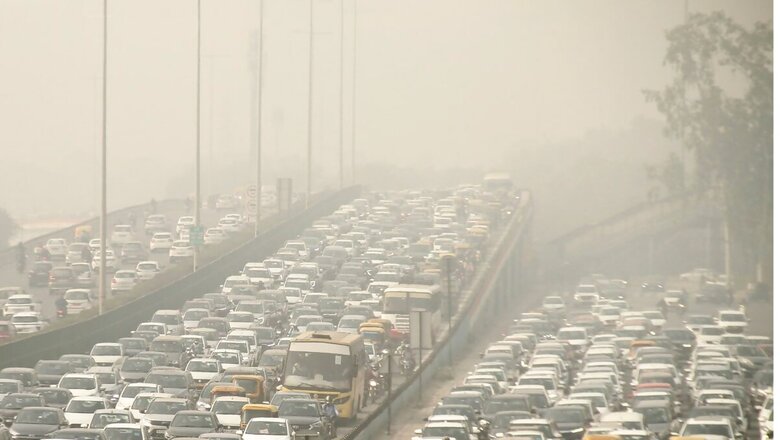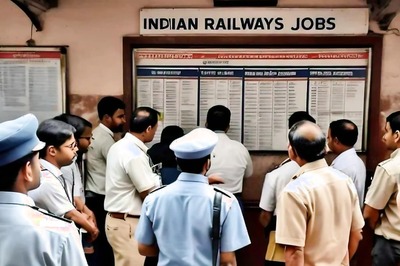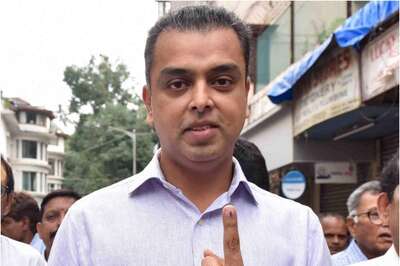
views
As the national capital starts to grapple with poor air quality, it is expected that the Odd Even Scheme may come into force. Delhi Environment Minister Gopal Rai has come up with the 21-point Winter Action Plan to combat severe air pollution in the city.
The plan outlines strict measures to combat air pollution, including vehicle shutdowns at red lights, odd-even rules, work from home, artificial rain, and the Graded Response Action Plan (GRAP).
However, experts have voiced the effectiveness of the Odd Even Scheme which usually comes into force during this time in view of extreme air pollution. After analyzing at the results of the Odd Even scheme in the last few years, it has been found that this scheme has little impact on curbing Delhi’s pollution but more on people who commute in their personal vehicles.
Vivek Chattopadhyay, Principal Program Manager in the Air Pollution Control Unit at the Center for Science and Environment said that the pollution level in Delhi has started increasing from September. With weather changing and the wind speed slowing down, it is expected that the air quality may worsen by mid-October.
Although the government is in talks about implementing the Odd-Even scheme to reduce the movement of vehicles in Delhi, it is difficult to ascertain how effective the scheme will be.
According to Vivek Chattopadhyay, even if the government starts implementing the Odd-Even scheme early on to control pollution, it will have fewer benefits and more problems. He said that this Odd-Even Rule should be implemented only when the situation becomes very serious, and there is no other way out. Even then, he said that this measure should be restricted for only for a limited period of 4-6 days.
Chattopadhyay listed out five reasons behind his thinking:
Will Not be implemented in Surrounding Cities
Even if the Delhi government implements the Odd-Even scheme, this will not be applicable in the nearby cities like Noida, Gurugram, Ghaziabad and Faridabad. In such a situation, people have to follow this Rule only to pass through Delhi. This will lead to two things: Firstly, the pollution level will not decrease as much as it could have if this measure had been implemented in other surrounding cities as well. Secondly, it will unnecessarily add to the problems of commuters of nearby cities as they have to start looking for other bypass routes.
Will not be applicable for two-wheelers
The Odd-Even scheme is applicable only for four-wheelers and not two-wheelers, even though the number of two-wheelers is also very high in Delhi. These vehicles add to air pollution as well though there is little hope if implementing this scheme for four-wheelers will be beneficial in curbing pollution.
Commuters Drive before 8AM, Pollution levels shift
The Odd-Even scheme is applicable between 8 am and 8 pm. During this time, vehicles with odd numbers will travel on one day and vehicles with even numbers on the other day. But it is seen that to avoid this rule, people travelling before 8 am and after 8 pm. This leads to shift in both traffic and pollution levels. Pollution level starts coming down during the day and starts increasing at night.
Driving Old vehicles Adds to Pollution
When the Odd-Even scheme is in place, people start driving their old vehicles, which in turn leads to more pollution. They drive diesel vehicles or those vehicles with BS 3 or BS 4 engines.
People start driving old vehicles just to show match with the odd-even numbers. This in turn leads to more air pollution. Therefore, the Odd-Even scheme alleviates the problem instead of helping in curbing pollution. The government should ban such old vehicles during this season.
Traffic congestion increases
Since visibility starts decreasing during those days, it has been seen that due to implementation of the Odd-Even scheme, the problem of traffic congestion increases. The number of auto rickshaws and cabs increase in place of private vehicles. The limited means of public transportation also become crowded.
Hence it is important for the government to be multidimensional and work on improving infrastructure to deal with the problem of pollution first before taking any drastic measures.
Chattopadhyay said that Delhi has been dealing with air pollution for quite a long time and such situations of severe air pollution in the city for weeks arise every year. He suggested that waking up on September to deal with air pollution will not work. Instead, the government should be working on this aspect throughout the year. This will ensure that hasty decisions are not taken when air pollution become severe in the national capital.
















Comments
0 comment